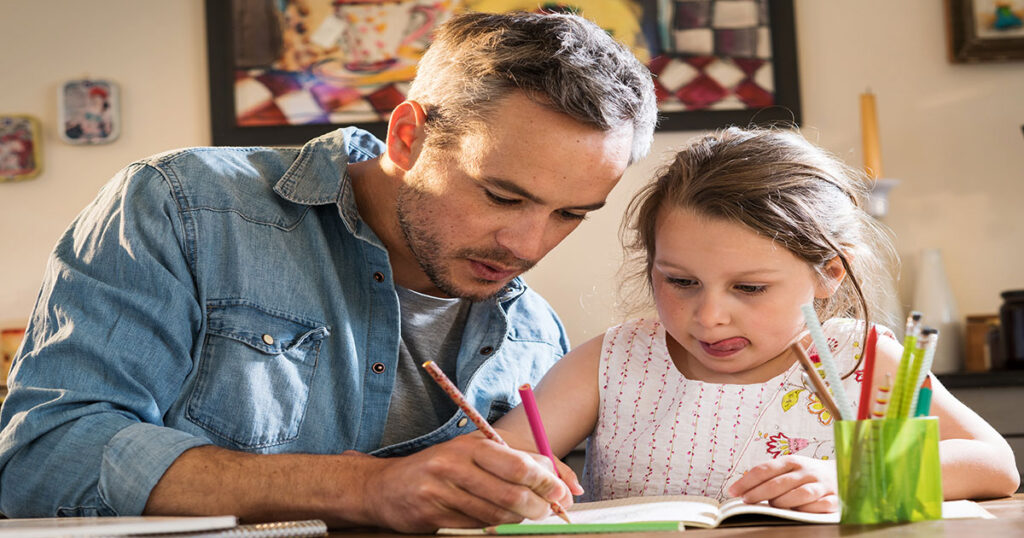
A year ago when the reopening of schools for the 2020-2021 school year was in doubt, I realized that I had to step into the breach. So did many parents.

I started my own version of homeschooling for my soon-to-be-kindergartner. We did “numbers” over breakfast, “letters” before dinner, and I read to him at bedtime. It was nothing sophisticated; it took only about an hour in total, before and after my workday; but it worked.
By summer’s end, my youngster was already proficient in numbers beyond the level expected at the end of kindergarten, and he knew the alphabet, more than a few words and was ready to read.

Census Bureau surveys show many families have engaged in some form of homeschooling, which doubled from 5.4% of households with school-age children a year ago to 11.1% at the end of last September. The Bureau conceded problems with the wording of its survey, so this is not a precise measure.
So how did it go? According to EdChoice, an education think tank, Americans have developed a more favorable view of homeschooling during the pandemic, with 63% more favorable than before.

But will parents remain favorable, or more significantly, turn favorability into actual practice, and, if so, in what form? The 2020 school year has seen a proliferation of different types and degrees of homeschooling. Surely the formal homeschooling movement must have grown, but, undoubtedly, most of the increase has been in ad hoc arrangements born of the pandemic.

In the absence of data from broad studies, let me share my personal experience with my kindergartner. As described above, we accomplished our mission over the summer, so much so that I decided to continue the full effort even though we were blessed that our local elementary and middle schools re-opened in September and have operated in-person for five days a week for the entire school year.

More important than the strict academic mission, we are having a great time. He is happy and excited about learning. This is critically important, since one’s first experiences tend to be “imprint” experiences that have disproportionate long-lasting impact.
He knows that education is important in our family, and I have developed an even deeper appreciation of that importance.
He knows that learning takes place as much at home as at school. That’s our hybrid model. His teacher at school has done a wonderful job. Our at-home effort is not designed to replace school, nor just to supplement it either. It is a co-equal effort. I intend to continue it, even as it evolves into more challenging material in higher grades.
What I have described may simply be what responsible parents have always done. Maybe, but the more parents who do this, the better.
That’s the bright side of our story.
Unfortunately, certain troubling trends in American education may push me toward a greater embrace of homeschooling.
The highly controversial revisionist interpretation of U.S. history as predominantly race-based is just that, highly controversial, as is the diagnosis that current society is systemically racist. Yet they are being imposed in some places. Offering another version or perspective, no matter how controversial, is one thing, but imposing it as the only interpretation is quite another.
Judging past behavior and events outside of historical context is faulty intellectually. What is even worse is implying a present-day responsibility and guilt for, and need to atone for, the actions of ancestors, and encouraging victimhood and entitlement related to treatment of ancestors. Today’s children are innocent in all respects. Let them begin with a clean slate and a positive outlook.
Tragically, school systems are abandoning objective merit-based selection for advanced learning programs and admittance to high-performance high schools in favor of vague and subjective admissions criteria that are supposedly fairer. High schools in Virginia and in New York City offer examples of this concerning trend.
Schools should be primarily academic. Yet, new public school sex education guidelines are being adopted that encompass the full spectrum of LGTBQ issues beginning in kindergarten. There’s a difference between teaching tolerance and acceptance for people who are different for any reason and premature introduction of sex issues before puberty, when a child’s own sexuality only begins to emerge.
The original introduction of sex education was controversial enough that many states allow parents to exempt their children. Schools should defer more to the family and other institutions on the non-academic dimensions of development.
I hope to stick with the ad hoc hybrid model that I have developed for my kindergartner, because parental involvement combined with rigor at school has always been the best model in education. However, if his schools lose their academic focus and rigor, and venture into these concerning areas, we will give greater weight to the home dimension.
![]()
Red Jahncke is a nationally recognized columnist, who writes about politics and policy. His columns appear in numerous national publications, such as The Wall Street Journal, Bloomberg, USA Today, The Hill, Issues & Insights and National Review as well as many Connecticut newspapers.

